Researchers at the Otago Business School spearhead and contribute to a diverse range of scientific endeavours. Our staff regularly work collaboratively across disciplines and with national and international colleagues.
The potential research impact of our work on current and emerging challenges is regularly recognised with support from significant funding bodies.
Good Nature, Bad Nature: An invasive species research project
Good Nature, Bad Nature is a Marsden-funded research project exploring the current and future management of invasive species, and peoples' values associated with contentious species.
This study will help us understand how attitudes to invasive species are formed, and consequently how to generate support for their current and future management.
Such is the cailbre of our staff that Otago Business School research regularly features in He Kitenga, the University of Otago's prestigious annual research publication.
View our selected features below.
Virtual connection
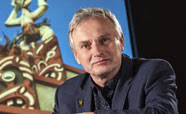 The University of Otago is collaborating in the leading-edge Ātea project to enable Māori to remain connected via a virtual 3D marae.
The University of Otago is collaborating in the leading-edge Ātea project to enable Māori to remain connected via a virtual 3D marae.
When you no longer live close to home it is often difficult to stay connected to your iwi, to your whānau and to your marae.
Professor Holger Regenbrecht
Accounting for biodiversity
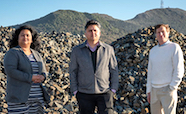 Biodiversity accounting has become part of the annual reporting cycle for a growing number of companies, but why is this now important and what does this mean for New Zealand business?
Biodiversity accounting has become part of the annual reporting cycle for a growing number of companies, but why is this now important and what does this mean for New Zealand business?
Biodiversity accounting is a way of recognising and quantifying the environmental impact of an organisation's operations. Some global companies now undertake annual biodiversity accounting, recognising the importance of understanding the true costs of business.
Pictured from left:
Dr Mansi Mansi
Dr Rakesh Pandey
Professor Ralph Adler
Augmented serendipity
 It is often acknowledged that the best solutions to complex problems are the simplest ones – or apparently simple.
It is often acknowledged that the best solutions to complex problems are the simplest ones – or apparently simple.
When looking to ascertain who was working with whom, on what and how within Otago's Business School, Dr Brian Spisak (Management) has simply connected the dots.
Dr Brian Spisak
Building partnerships...not silos
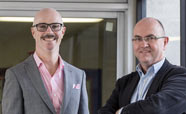 Better integration is one of the key issues facing health care globally, but the challenge is how to bring health professionals, researchers and the community together.
Better integration is one of the key issues facing health care globally, but the challenge is how to bring health professionals, researchers and the community together.
Now the University of Otago is in a unique position to drive health systems integration in New Zealand, having recently created the Centre for Health Systems and Technology (CHeST).
Centre for Health Systems and Technology
Pictured from left:
Professor Robn Gauld
Professor Tim Stokes
Climate migration
 Climate change is starting to influence human migration.
Climate change is starting to influence human migration.
Otago Business School economics researcher Associate Professor Dennis Wesselbaum has been able to show for the first time that not only are the effects of climate change influencing people's decisions to migrate, they are actually more important driver than income and political freedom from the origin country.
Associate Professor Dennis Wesselbaum
Diversity or tokenism
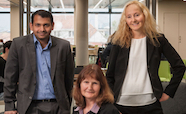 It's all very well to have targets or quotas for female representation on boards, but their voice also needs to be recognised for any benefits to be realised.
It's all very well to have targets or quotas for female representation on boards, but their voice also needs to be recognised for any benefits to be realised.
A University of Otago study of Asian businesses found evidence of tokenism, where women were represented on boards, but did not have a voice nor influence.
Otago Business School Accountancy and Finance researchers Associate Professor Ros Whiting, Dr Helen Roberts and Dr Pallab Biswas have studied the role of women in governance in businesses across Hong Kong, South Korea, Malaysia, Singapore and Bangladesh.
Pictured from left:
Dr Pallab Biswas
Associate Professor Ros Whiting
Associate Professor Helen Roberts
Paths to innovation
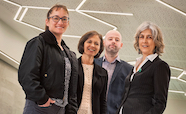 University of Otago Business School Associate Dean Māori, Research Associate Professor Katharina Ruckstuhl is co-leading a Science Challenge project that could change the way we approach high-tech research.
University of Otago Business School Associate Dean Māori, Research Associate Professor Katharina Ruckstuhl is co-leading a Science Challenge project that could change the way we approach high-tech research.
One of 11 National Science Challenges, the Science for Technological Innovation Challenge (SfTI) is a multi-million dollar government investment in growing a high-tech New Zealand economy via the physical sciences and engineering. It includes projects such as 3D printing, robotics, “big data”, virtual reality and AI.
Pictured from left:
Professor Merata Kawharu
Dr Maria Amoamo
Associate Professor Conor O'Kane
Research Associate Professor Katharina Ruckstuhl
Related business research expertise
More about:







